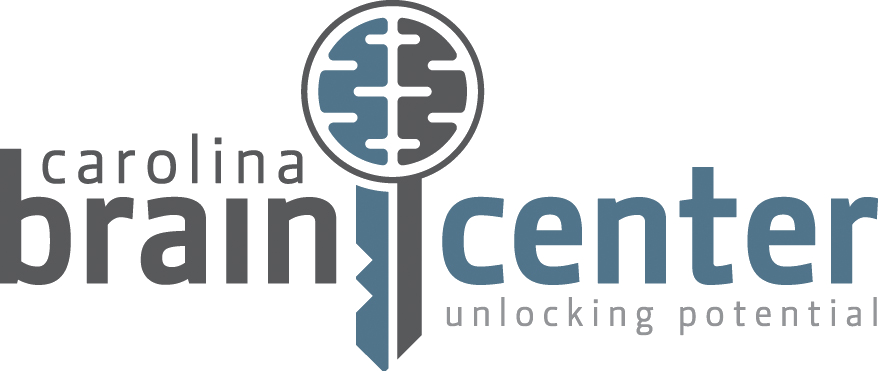As we age, the quest to maintain our mental vitality becomes increasingly important. For those of us over 50, preserving cognitive health is not just about adding years to our life but adding life to our years. In this context, brain fitness emerges as a crucial aspect of our overall well-being. At Carolina Brain Center, we understand the complexities of cognitive aging and the desire to remain mentally sharp and engaged. As a Chiropractic Neurologist, I’ve witnessed firsthand the transformative effects of proactive strategies in sustaining cognitive functions. This article aims to explore the most effective strategies for brain fitness, diving into the realms of physical activity, mental exercises, nutrition, and the pivotal role of Chiropractic Neurology in supporting brain health. Join me on this journey to unlock the secrets of maintaining mental vitality after 50.
Understanding Cognitive Aging
Cognitive aging is a natural process that can affect memory, attention, and problem-solving skills. While it’s common to experience some degree of cognitive decline as we age, it’s crucial to recognize that this decline is not inevitable. Research has shown that our brains possess a remarkable capacity for neuroplasticity—the ability to form new neural connections throughout life. This adaptability means that, with the right interventions, we can continue to enhance our cognitive functions well into our later years.
The key to mitigating the effects of cognitive aging lies in understanding its mechanisms and adopting proactive measures to support brain health. Regular mental stimulation, physical exercise, social engagement, and proper nutrition can all contribute to a robust cognitive reserve, helping to offset the impacts of aging on the brain.
The Pillars of Brain Health
Physical Exercise
Physical activity stands out as one of the most effective ways to boost brain health. Engaging in regular exercise, particularly aerobic activities, can increase blood flow to the brain, enhance the growth of new blood vessels, and stimulate the production of neurotrophic factors that support neuron survival and plasticity. Activities such as walking, cycling, and swimming are not only beneficial for physical health but also play a significant role in improving cognitive functions, including memory and executive functions.
Mental Stimulation
Challenging your brain with new and complex activities is another cornerstone of maintaining cognitive health. Activities that require problem-solving, learning, and memory, such as puzzles, learning a new language, or playing a musical instrument, can strengthen neural networks and build cognitive reserve. This mental exercise helps to ensure that the brain remains active and engaged, reducing the risk of cognitive decline.
Social Engagement
Social interaction is a powerful tool for cognitive health. Engaging in meaningful relationships and participating in social activities can reduce stress, combat depression, and stimulate cognitive processes. Social engagement often involves complex communication and emotional intelligence, providing a rich environment for cognitive stimulation. Whether it’s joining a club, volunteering, or simply spending time with loved ones, fostering social connections can have a profound impact on brain health.
Nutrition for the Aging Brain
Nutrition plays a pivotal role in supporting cognitive health as we age. A diet rich in antioxidants, omega-3 fatty acids, vitamins, and minerals can protect the brain from oxidative stress and inflammation, both of which are linked to cognitive decline. Foods such as leafy green vegetables, berries, nuts, fish, and whole grains are packed with nutrients that support brain function.
Omega-3 fatty acids, found in fish like salmon and sardines, are particularly beneficial for the aging brain. These essential fats contribute to the integrity of cell membranes and are involved in neurogenesis, the process of creating new neurons. Additionally, antioxidants from fruits and vegetables can neutralize harmful free radicals, protecting brain cells from damage.
Adopting a Mediterranean-style diet, which emphasizes these brain-healthy foods, has been associated with a lower risk of cognitive decline and dementia. By making simple dietary changes, such as incorporating more whole foods and reducing processed food intake, individuals can significantly impact their cognitive health and overall well-being.
Mindfulness and Stress Reduction
The impact of stress on cognitive health cannot be overstated. Chronic stress has been linked to a variety of cognitive issues, including memory loss, decreased cognitive flexibility, and even a reduction in brain volume in areas critical for memory and executive function. Mindfulness and stress reduction techniques offer powerful tools to combat these effects, promoting mental clarity and resilience.
Mindfulness practices, such as meditation, deep breathing exercises, and yoga, can significantly reduce stress levels and improve cognitive functions. These practices encourage a state of active, open attention to the present moment, helping individuals break free from repetitive negative thoughts that contribute to stress. Regular mindfulness practice has been shown to enhance attention, concentration, and emotional regulation, all of which are vital for maintaining cognitive health.
Incorporating these practices into your daily routine doesn’t have to be time-consuming or complex. Even just a few minutes of mindfulness meditation or deep breathing exercises each day can make a meaningful difference in reducing stress and supporting brain health.

The Role of Sleep in Cognitive Health
Sleep plays a critical and multifaceted role in cognitive health. Quality sleep is essential for the brain’s ability to consolidate memories, process information, and repair itself. During sleep, the brain clears out toxins that accumulate during waking hours, including beta-amyloid, a protein associated with Alzheimer’s disease. This natural detoxification process highlights the importance of regular, restorative sleep for maintaining cognitive function.
Adults over 50 should aim for 7-9 hours of sleep per night, with consistent sleep and wake times to support the body’s natural circadian rhythm. Strategies to improve sleep quality include establishing a regular bedtime routine, reducing screen time before bed, and creating a comfortable, sleep-conducive environment. Improving sleep hygiene not only supports brain health but also enhances overall well-being.
Chiropractic Neurology and Cognitive Health
Chiropractic Neurology offers a unique and complementary approach to maintaining and enhancing brain fitness over 50. As a Chiropractic Neurologist, I specialize in assessing and treating neurological disorders without the use of drugs or surgery. Through a deep understanding of the nervous system’s dynamics, we employ targeted therapies to optimize brain function and support cognitive health.
During a visit to Carolina Brain Center, patients can expect a comprehensive evaluation that may include assessments of balance, coordination, reflexes, and cognitive functions. Based on this evaluation, personalized treatment plans are developed to address specific neurological imbalances. Treatments may involve functional neurological exercises, vestibular rehabilitation, and other non-invasive techniques designed to stimulate neural plasticity and enhance nervous system function.
Regular appointments with a Chiropractic Neurologist can be beneficial for early detection of cognitive decline and for implementing preventative strategies to maintain brain health. These targeted interventions can complement other brain fitness strategies, offering a holistic approach to cognitive wellness.
Developing a Personalized Brain Fitness Plan
Embarking on a journey to enhance your cognitive health requires a personalized approach, one that acknowledges your unique lifestyle, interests, and health status. Creating a brain fitness plan tailored to your needs can optimize your cognitive functions and enrich your life quality. Here’s how to begin crafting your personalized plan:
- Assess Your Lifestyle: Start by evaluating your current lifestyle practices related to physical activity, diet, mental stimulation, social engagement, and sleep habits. Identify areas where there is room for improvement.
- Set Realistic Goals: Based on your assessment, set achievable goals. For instance, if you’re not very active, aim to incorporate 30 minutes of walking into your daily routine. If your diet lacks essential nutrients, consider ways to include more brain-healthy foods.
- Incorporate Mental Exercises: Choose mental activities that you enjoy and that challenge your brain. It could be puzzles, reading, learning a new skill, or engaging in a hobby that requires concentration and creativity.
- Enhance Social Connections: Look for opportunities to engage more with your community. Join clubs, participate in group activities, or volunteer. These social interactions can significantly boost your mental health.
- Practice Mindfulness: Integrate simple mindfulness exercises into your daily routine to help manage stress and enhance cognitive function. Even a few minutes of meditation or deep breathing can make a difference.
- Prioritize Sleep: Evaluate your sleep habits and make necessary adjustments to ensure you’re getting quality rest. Consider establishing a calming bedtime routine and optimizing your bedroom environment for sleep.
- Consult with a Chiropractic Neurologist: Schedule an appointment with a Chiropractic Neurologist for a comprehensive evaluation and personalized recommendations. Integrating chiropractic neurology into your plan can provide targeted support for your cognitive health.
Conclusion
Maintaining brain fitness over 50 is not only possible but essential for living a vibrant, fulfilling life. By adopting a holistic approach that includes physical exercise, proper nutrition, mental stimulation, social engagement, mindfulness, and quality sleep, you can significantly enhance your cognitive resilience. Furthermore, incorporating the expertise of a Chiropractic Neurologist can offer additional support, providing you with personalized strategies to optimize your neurological health.
At Carolina Brain Center, we are committed to helping you navigate the path to cognitive wellness. Whether you’re looking to maintain your mental sharpness, address specific concerns, or simply enhance your overall well-being, we are here to support you every step of the way.
Remember, it’s never too late to start focusing on your brain health. By taking proactive steps today, you can enjoy the benefits of a sharp and agile mind for years to come. Let this journey be one of discovery, empowerment, and lifelong learning. Embrace the opportunity to not just age gracefully, but to thrive with mental vitality and resilience.
Schedule a Consultation Today
Are you ready to take the first step towards enhancing your cognitive health? Contact Carolina Brain Center today to schedule a consultation. Together, we can develop a personalized brain fitness plan tailored to your unique needs and goals. Let us be your partner in maintaining and enhancing your mental vitality for a brighter, healthier future.

